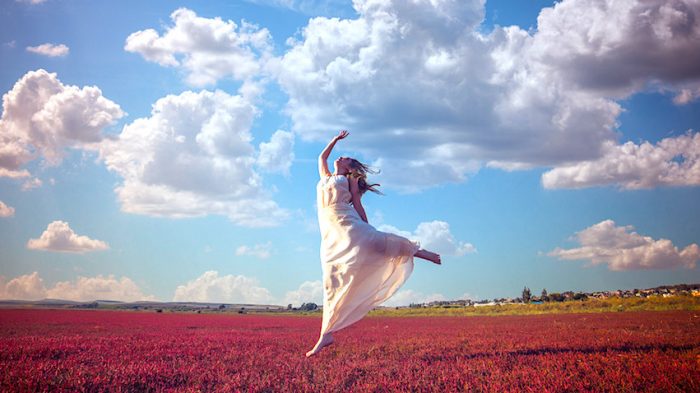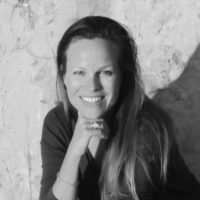“If we surrendered to earth’s intelligence, we could rise up rooted, like trees.” ~ Rainer Maria Rilke
~
Aged 30, Dr. Sharon Blackie, psychologist and mythologist, found herself weeping in the car park of the multinational corporation where she worked, wondering if this was what a nervous breakdown felt like.
Somewhere along the line, she realised, she had lost herself, and so began her long journey back to authenticity, rootedness in place and belonging, says the description of her book If Women Rose Rooted.
It happens every now and then; you’re reading a book, and right from the first page it speaks to you. From the beginning to the end and beyond, you and this book are best friends. It’s comforting and it’s impossible to put away.
If Women Rose Rooted by Dr. Sharon Blackie is such a book. It’s a deep mythological book, like the classic Women Who Run with the Wolves by Jungian analyst Dr. Clarissa Pinkola Estés.
I read it last year, and I will read it again this year. The wisdom she shares in this book is mind-blowing. Sometimes it reads like poetry; it wants to tell you something, something that lies deep down and we never took the time to listen until now.
Every woman, with or without a corporate job, being a mother or childless; in a relationship, married, or single; and regardless of where she is on her path, this book helps to find our way back to that which was lost along the way. It’s about female strength, about heroines in cultures and history who have been forgotten in our Western society and whose stories are lost.
At times, we feel the urge to nourish our souls with profound wisdom, rather than eating cake, crisps, and chocolate, to find peace and consolation. This book gives both comfort and the courage to look deeply into our lives and the state of Mother Earth.
Through this book, I started to think about my journey, a “Heroine’s Journey,” as Blackie calls it. I started this journey some years ago when I left my legal profession behind and moved to a Mediterranean island with my partner, because we wanted to live simply, with the values that were more aligned with who we were.
On the way, I took some turns to find out I still wasn’t doing the work that truly meant something to me. I started to write, we moved to an ecological tiny home that my partner constructed for us, and I learned about plant-based food—these were the few things that changed my perspectives. I’m still on my way.
Somehow this book opened my eyes to find more truth and meaning in my life. It’s certainly not the path society carved out for me. There are weak moments when I heavily doubt our minimalist lifestyle, which feels uncomfortable at times, followed by days when I find myself in utter happiness and gratefulness for the choices we’ve made together so far.
Let me share some of Blackie’s wisdom by means of these thought-provoking quotes from her book, and let it be of benefit for those women who are looking for authenticity and belonging in their lives.
1. “To change the world, we women need first to change ourselves — and then we need to change the stories we tell about who we are. The stories we’ve been living by for the past few centuries — the stories of male superiority, of progress and growth and domination — don’t serve women and they certainly don’t serve the planet.”
She writes about going on a “Heroine’s Journey” to discover our own authentic values and ways of being in today’s world and sense of belonging to this Earth:
2. “A journey to understanding how deeply enmeshed we are in the web of life on this planet. A journey which requires us to step into our own power and take back our ancient, native role as its guardians and protectors. The Heroine’s Journey we need to make today is, above all, an Eco-Heroine’s Journey.”
Blackie delves into Celtic culture and mythology to reconnect with womanhood.
3. “If women remember that once upon a time we sang with the tongues of seals and flew with the wings of swans, that we forged our own paths through the dark forest while creating a community of its many inhabitants, then we will rise up rooted, like trees.”
4. “Water is the source of life. But the source of life, like all things, must be cared for; a good well must be tended.”
About women who seek success and “equality” in a male-dominated world, she says:
5. “It is easier by far just to go with the system, because this world values women who do: women who stick to the rules, women who do not rock the boat, women who do not push for more. In becoming what we are not, in colluding with the patriarchy, we are cut off from the source of our own creativity, from the wild mystery and freedom which makes our hearts sing.”
What it means to live in the “Wasteland:”
6. “The Wasteland is the hollowness inside us, for we are reflections of the hollow world we live in. To embrace it might mean that we spend our lives doing work we hate in order to feel secure, defining ourselves by that work which we’re paid to do for others, wondering then why our hearts are breaking. It might mean that we wrap ourselves tightly in busy-ness and noise and never-enough-time and anxiety and panic and wonder why eventually our bodies break.”
And to find ourselves back, we need to re-find our ties with the natural world:
7. “We are bleeding at the roots, because embracing the Wasteland means that we are out of touch with the seasons and the cycles of the year, with the natural world to which we have forgotten we belong.”
8. “We may need to travel a long distance before we find the new skin that fits us, and before we can learn to be comfortable in it — but first, we have to commit ourselves to the journey. We have to awaken from our torpor, commit to life instead of the desiccated half-life of the Wasteland. We must shake off the false skins we’ve cloaked ourselves in; we must let the old die to make room for the new. We must be willing to detach from who we have been, what we have become, before we can discover who we are really meant to be and what our work is in the world.
9. “We must die to ourselves, and to the world, before we can be reborn.”
10. “Whatever form it takes, whether it comes easily to us or not, we have to be STILL, and TRUST; we have to resist the urge to view what is happening to us as a problem to be solved. We have to let ourselves hurt, release the old needs, let go of the old urges to become what we are not, what we were not meant to be. This is how we pave the way for rebirth.
11. “We are more than the sum of our wounds. We need to focus on coming back to our bodies, beginning to repossess our instincts, beginning to reclaim our deep connection to the land and its non-human inhabitants. This is how we heal.”
About the help of allies, especially animal allies in Celtic mythology, she says:
12. “Women are not just helped by animals, they are accompanied by them. The most common companions of divine women are snakes, horses, dogs and birds, and each of these creatures offers a different kind of knowledge and wisdom.
This ancient perception of animals are so much more than mere companions, so much more than just a source of food, can’t be assimilated into the worldview of a society which sees animals as inferior to humans, devoid of emotion and intelligence, and lacking in spirit or soul. But coming to understand our kinship with them is an important part of truly seeing ourselves as part of the web of life on this planet and this understanding to the world.”
This quote says it all:
13. “Life is not about being safe and secure; life is about growing, learning, transforming.”
Dr. Sharon Blackie’s profound wisdom, interwoven with ancient, forgotten stories and myths, bring light in the darkness. I hope it does for other women, too.


 Share on bsky
Share on bsky





Read 18 comments and reply